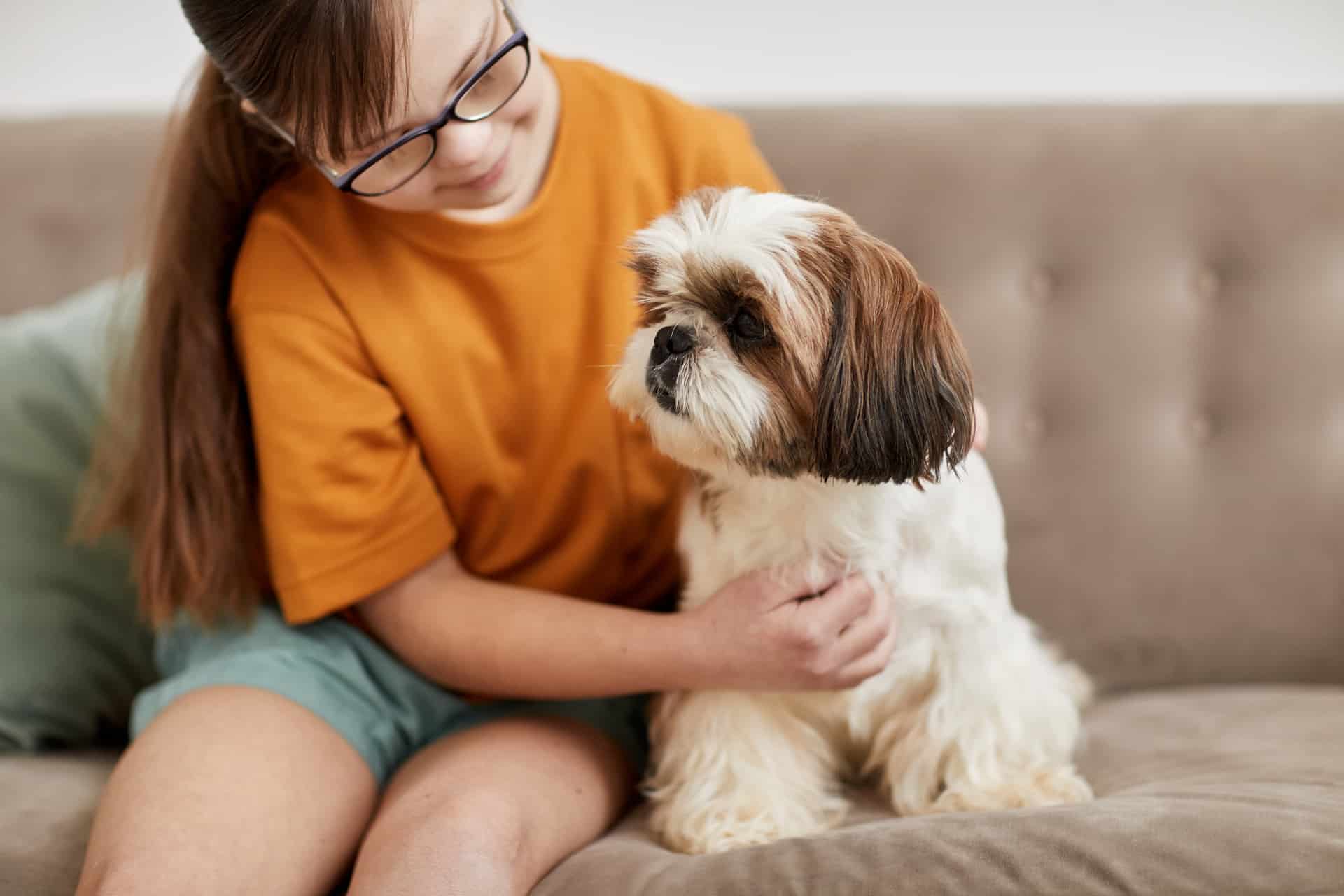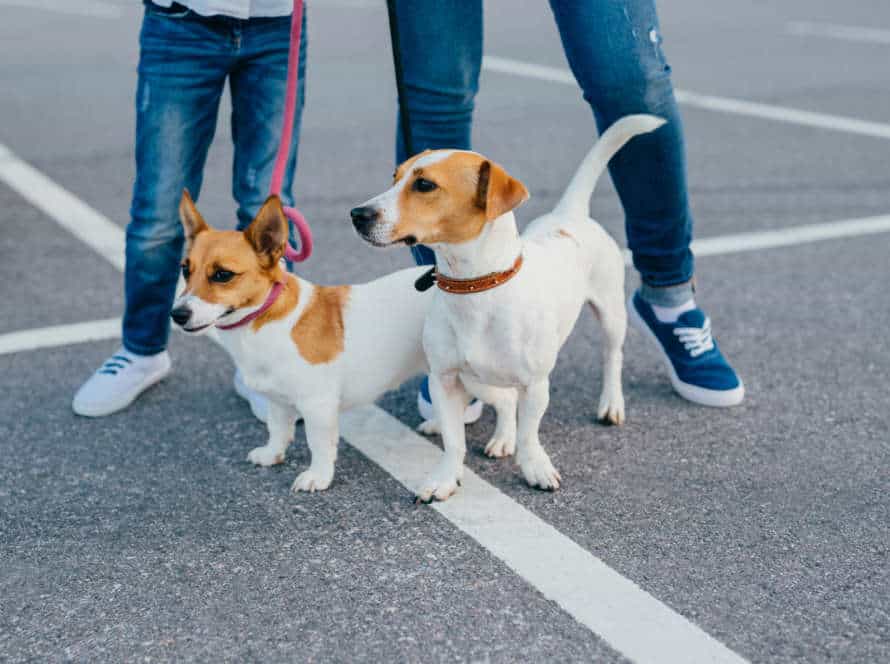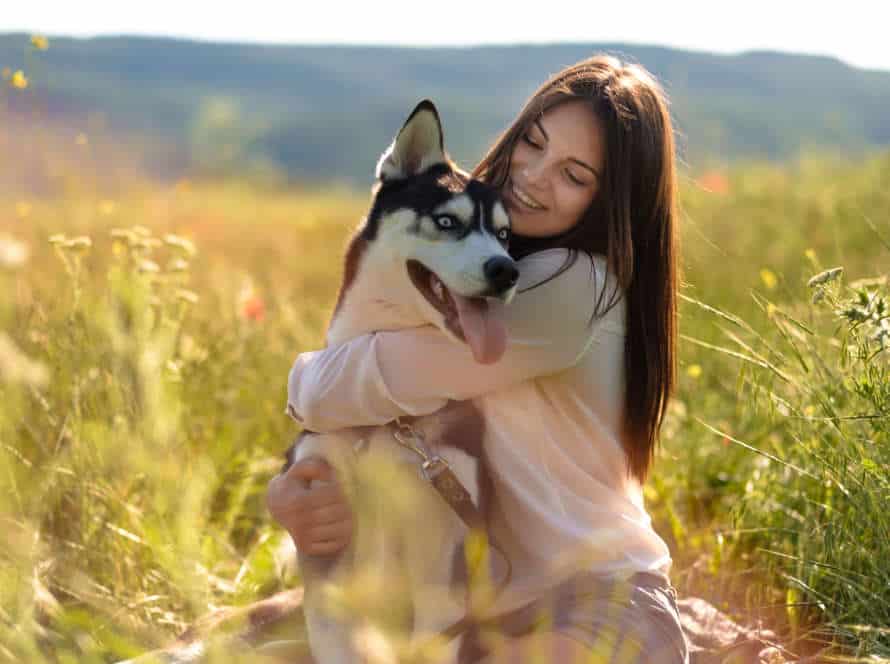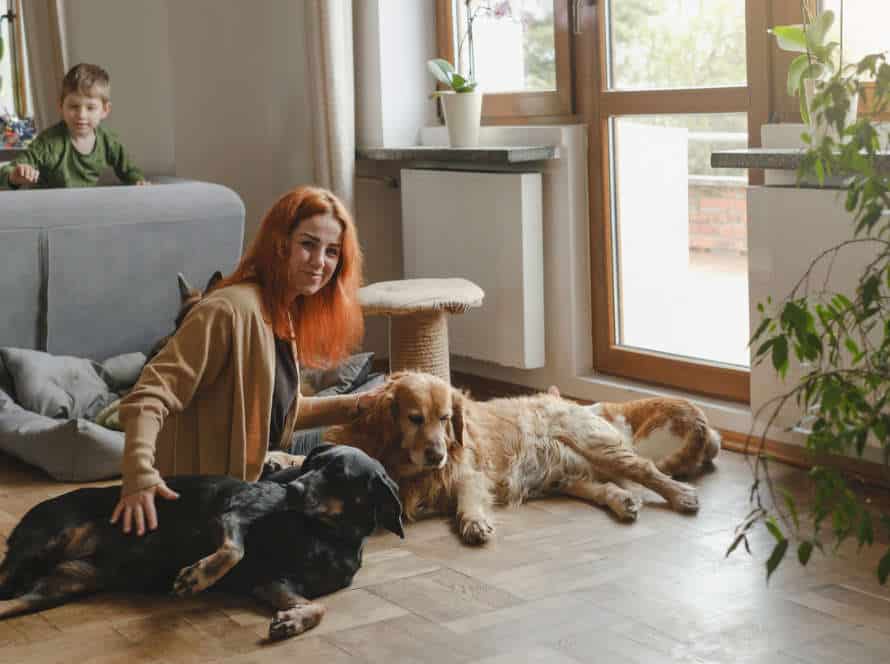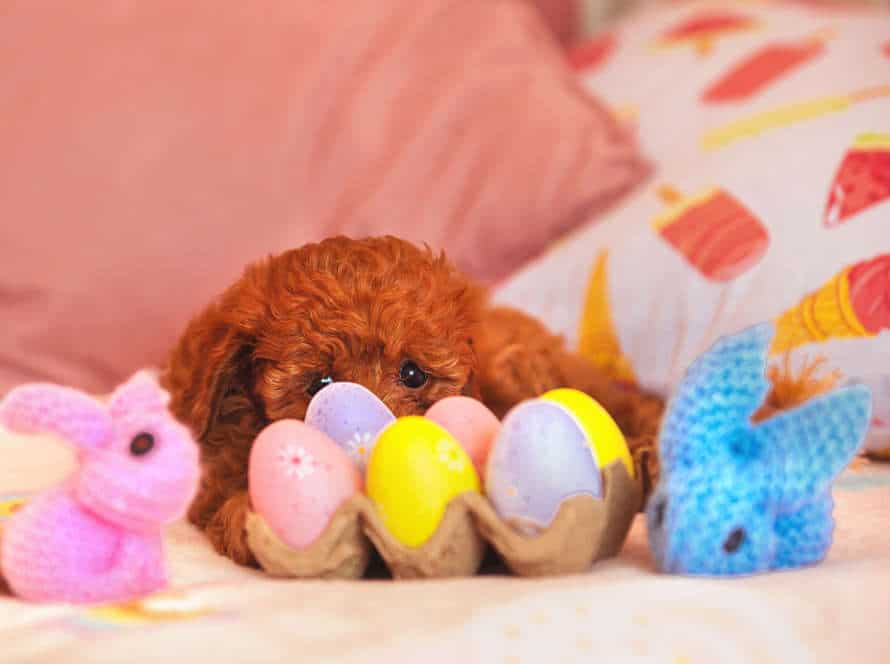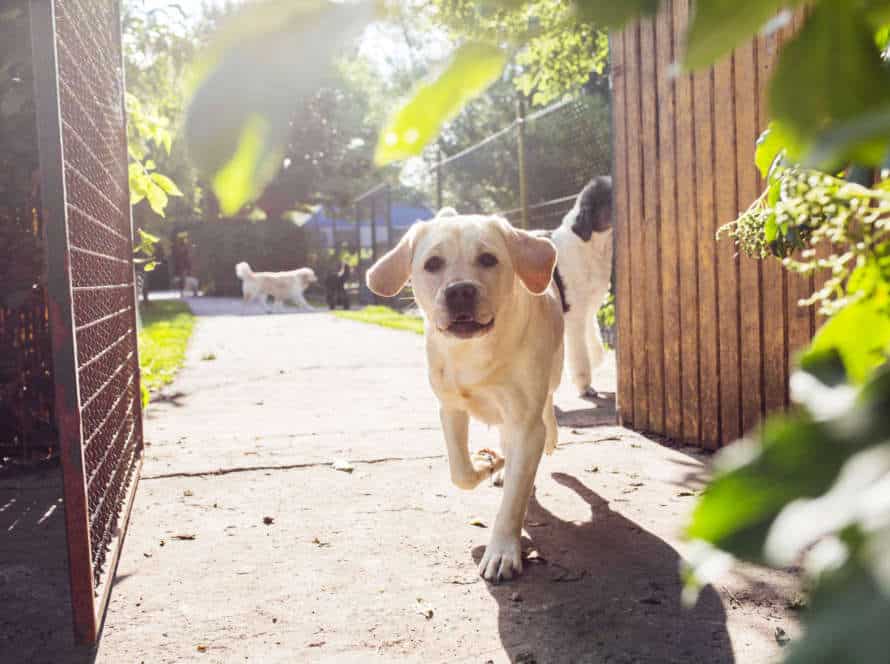Guiding Your Outgoing Puppy to Become a Well-Behaved Dog
Outgoing pups can be great fun, but without proper guidance, they can turn into wild, ill-mannered dogs. Here are some tips to help you guide your outgoing puppy to become an obedient dog:
- Start teaching early: Start socialization and basic training as soon as possible. Introduce your puppy to other dogs, people, and experiences.
- Set regulations and boundaries: Set up clear rules and boundaries that everyone follows and sticks to.
- Reward good behavior: Use positive reinforcement to encourage good behavior and avoid bad behavior.
- Give them exercise and mental stimulation: Provide enough exercise and mental stimulation to keep your puppy busy and stop it from misbehaving.
- Patience and consistency: The key to training your puppy is consistency. Be patient and keep training your dog to learn good habits and prevent bad behaviors. Pro tip- Don’t forget that raising a well-behaved dog takes time, effort, and patience. Stick with the process and you’ll soon have a content, trained canine companion!
Understanding Puppy Behavior
Pups are curious, lively, and can be goofy! As they explore their surroundings, they meet new people, spots, and stuff. It’s essential for owners to get a grip on pup behavior. By understanding it, owners can coach their pup into becoming a good-mannered adult dog and strengthen their connection. Let’s look into the basics of puppy behavior and how to guide it.
Learning How Puppies Develop
Knowing puppy progress is key to raising your pup to be a polite pooch. Puppies go through various phases of growth, with each step having an impact on their conduct and total character. Here’s a quick look at the several developmental stages of puppies:
- Neonatal: This is the initial two weeks of a pup’s life. They rely on mom for survival in this period.
- Transitional: From week two to four. Puppies gain the power to see and hear.
- Socialization: This stage, from four to twelve weeks, is paramount in forming a pup’s personality and actions.
- Juvenile: This is from three to six months, with teething and grown-up actions developing.
- Adolescent: From six to eighteen months, you may see your pup testing limits and acting wild.
- Adult: That’s when your adorable fur-bundle turns into a mature adult dog.
Comprehending these phases can aid you in leading and training your pup so they become a well-mannered, contented dog.
Understanding the Socialization Period
The socialization period for puppies is vital for their development. It’s when they learn to interact with people, animals, and the environment. Here are some key points:
- Timing: Usually 3-14 weeks. Expose your pup to lots of experiences during this time.
- Exposure: Show your pup to new people, animals, and places. Make sure they feel safe and content.
- Training: Use positive reinforcement techniques to teach your pup things like house training and commands.
- Challenges: Your pup may face fear, anxiety, or stress. Be supportive and patient with them.
By guiding your pup through the socialization period, you can help them become a balanced and well-mannered adult dog.
Recognizing Common Puppy Behaviors
As a puppy parent, it is essential to comprehend typical puppy behaviors and how to guide your energetic pup to become a well-mannered dog. Here are some common behaviors to recognize:
- Chewing: Pups explore their surroundings with their mouths and might want to chew on almost anything. Give them lots of chew toys to redirect their chewing behavior.
- Barking: Pups bark to communicate, and too much barking could mean separation anxiety or boredom. Crate training and exercise can aid in managing this behavior.
- Nipping: Pups use their mouths to play and learn bite inhibition, which could lead to nipping. Consistent training and socialization can help minimize this behavior.
- Jumping: Pups have lots of energy and may jump to greet people or show excitement. Teaching them to sit and stay can prevent this behavior.
Remember, puppies need plenty of patience, love, and training to become good dogs.
Essential Puppy Training
Training your pup is key when transitioning them into a good doggie. Start right away to get them used to structure and regulations. This article covers essential puppy training techniques to make sure your pup develops into an obedient pup. It’s important to begin early!
Setting Up Your Home for Success
Set your home up for success! It’s essential to guide your outgoing pup towards becoming a well-behaved dog. Here are tips to help:
- Establish boundaries. Decide off-limit areas & set up baby gates/barriers.
- Puppy-proof your home. Remove hazardous items like breakables, cords, & cleaning chemicals.
- Create a cosy sleeping area. Set up a spot like a crate or bed. Add soft blankets & toys.
- Provide proper nutrition. Pick high-quality puppy food & feed at regular times.
- Consider crate training. It’s an effective way to help your pup learn boundaries & provide security.
The right setup will give your puppy a safe & comfortable environment to learn & grow into a happy, healthy, & obedient dog.
Establishing a Consistent Routine
A routine is super important for pup training. It helps your pup become a good dog. Here are essential tips to make it happen:
- Schedule feedings, same time each day.
- Create a potty area & take pup there frequently.
- Set up exercise, like walks or playtime.
- Set a bedtime & wake-up routine.
- Use positive reinforcement to reward good behavior.
- Practice obedience commands, like ‘sit’ & ‘stay’.
- Be patient & consistent. It takes time for your pup to learn. But with your help and routine, they’ll get it!
Teaching Basic Commands and Tricks
Training puppies is essential. Here are a few basic commands and tricks you can teach your pup:
- Sit: Hold a treat above their head and say “sit”. Then, press their hindquarters and reward them with the treat.
- Stay: Ask them to sit, then say “stay” with your hand up. Step away from them and reward them if they stay put.
- Come: Say “come” while patting your legs and encourage them to run towards you. Give them a treat when they reach you.
- Shake: Hold a treat in your closed fist and say “shake”. Your pup will likely paw at your hand. Open your hand and reward them with the treat. Repeat until they learn it without pawing.
Keep sessions short and positive. Use treats and praise to reward good behaviour.
Addressing Common Behavior Issues
As your pup grows bigger, they’ll display certain behaviors. These can include jumping, chewing, biting, barking a lot and more. You must pay attention to these issues and act fast. In this article, we’ll talk about how to manage common behavior issues during puppyhood and into adulthood.
Nipping and Chewing
Nipping and chewing are common puppy behaviors. But, with the correct guidance and training, your pup can become a good-mannered dog. Here are some tips to stop the biting:
- Redirect their attention – Give toys or chew treats instead of your skin or clothing.
- Use positive reinforcement – Reward your pup for using toys or treats instead of the wrong things.
- Set boundaries – Establish which areas and items are off-limits.
- Be consistent – Don’t give confusing signals.
- Be patient – Give your puppy time to learn and adjust.
With the right help, your outgoing pup can turn into an obedient dog you can be proud of.
Jumping Up
Jumping is a common problem with outgoing puppies. But, you can fix it with positive reinforcement training. Here’s what to do:
- Turn away when pup jumps on you; no reward!
- Ask pup to sit when they greet you; reward them with treat or affection.
- Ask family and friends to practice same training when they visit.
- When pup gets too excited, redirect them to a toy or activity.
- Be patient, consistent, and positive with the training. It takes time and repetition for new habits to form in dogs.
Pro tip- Socialize and use positive reinforcement training to help pup become an adult dog.
Barking and Howling
Barking and howling are common for outgoing puppies. To make them good-mannered dogs, here are a few tips:
- Set clear rules about acceptable behavior.
- Let your pup meet different people, dogs and environments, to learn how to socialize properly.
- Reward good behavior and correct bad through positive reinforcement, not punishment.
- Exercise and playtime can prevent boredom and destructive behavior.
- If issues persist, get help from a professional trainer or behaviorist.
By using these tips, you’ll be able to teach your outgoing puppy to be a well-behaved dog in any situation.
Advanced Training Techniques
Taming a pup may seem intimidating. But, with the correct approaches, it can be really enjoyable for both pup and owner. You can use more advanced training methods to educate your pup on commands, obedience and virtuous actions.
Here, we will delve into these training techniques and learn how to use them for your puppy.
Teaching Advanced Commands
It’s key to teach advanced commands if you’re looking to have a well-behaved pup. Here are some training strategies for guiding your pup’s behavior:
- Targeting: Have your pup touch an object with a body part by starting with a treat on your palm. As your pup gets comfortable, hold the treat further away and use a verbal cue.
- Distance commands: This command is helpful when you need your dog to stay away from something risky or to come to you from a distance. Use a long leash and practice in a secure, enclosed area.
- Impulse control: This technique needs your pup to remain quiet and focused in distracting situations. Practice “leave it” commands with toys or treats and steadily raise the level of distractions.
With perseverance and consistency, these advanced training techniques will help you raise an obedient pup that can manage any situation.
Introducing Your Puppy to More Complex Environments
As a puppy owner, gradually introduce your pup to complex environments. This will help them learn to cope with unfamiliar sights, sounds, and situations. Here are some advanced training tips for a well-behaved pup:
- Desensitization – Introduce new experiences slowly using treats and positive reinforcement.
- Counter-conditioning – Teach your pup to associate new experiences with rewards like affection and treats.
- Clicker training – Use clicker devices to signal good behavior and reward it.
- Positive reinforcement – Praise or treat good behavior to encourage more of it.
- Providing structure – Establish routines, set boundaries and rules, and explain what you expect.
Training for Specific Purposes or Jobs
Trainin’ a pup? It depends on the pup’s purpose. Advanced techniques for specific tasks? Yup!
A guide dog needs to know how to navigate, and a police pup needs to sniff out drugs or bombs.
So, identify the pup’s job and get a trainer with the right program.
Pro tip: Ask for references and experience proofs. Make sure the trainer has a good track record of successful trainin’ for the pup’s breed and purpose!
Maintaining Good Behavior
Training a pup is key for making them into a fantastic pooch! Remember to reward their good behavior. Positive reinforcement is essential to help your pup understand what you want. Let’s discuss methods for keeping up the good habits and how to reinforce them!
Continuing Regular Training Sessions
It’s key to keep up regular training sessions with your pup. Here’s why:
- Puppies are easily distracted and need repetition to learn good habits.
- Training helps them develop skills such as obedience, socialization, and behavior control.
- Also, it lets you be the pack leader, building trust and loyalty between you and your puppy.
Tips for continuing regular training:
- Keep it short and enjoyable, about 10-15 minutes a day.
- Reward them with treats and praise for good behavior.
- Be patient and don’t expect quick results.
Training your puppy is an ongoing process. Consistent effort will lead to success in having a well-behaved dog.
Providing Enough Stimulation and Exercise
It’s essential to provide enough stimulation and exercise to your outgoing puppy so they can become a well-behaved dog. Puppies need lots of physical and mental stimulation to grow into healthy, happy dogs. Here are some ways to keep them stimulated:
- Playtime: Play games like fetch, hide and seek or tug-of-war with your pup to keep them engaged.
- Training: Training is a great mental workout for your puppy. Teach them basic commands (sit, stay, come) or tricks (rolling over, shaking hands).
- Walks: Regular walks are not just great exercise but also an exciting way for your pup to explore their surroundings.
- Toys: Toys give your pup various types of stimulation, from chewing to fetching. Rotate toys and provide challenging puzzle toys to keep them entertained.
Remember, a well-stimulated puppy will be less likely to chew things or misbehave out of boredom. Make sure to include physical and mental exercises in their daily routine.
Addressing Behavioral Changes or Concerns in Later Life.
Guide your pup to good behaviour! Here’s how:
- Take them to puppy classes – they’ll learn commands and how to socialize.
- Give them plenty of exercise and playtime – no boredom or naughty behaviour!
- Use positive reinforcement to reward good behaviour and redirect bad behaviour.
- Be consistent with rules and expectations.
- Address any behavioural changes or concerns promptly – like chewing, barking or aggression. Find out the cause and get help from a professional if needed. Early action is crucial for correcting dog behaviour.
Pro Tip: Invest time and effort in training and behaviour – it’ll pay off with a happy and obedient companion!
Frequently Asked Questions
Q: How can I help my outgoing puppy become a well-behaved dog?
A: You can help your outgoing puppy become a well-behaved dog by starting training from an early age, setting consistent rules and boundaries, providing plenty of exercise and mental stimulation, and using positive reinforcement techniques.
Q: What are some common behavior problems in outgoing puppies?
A: Some common behavior problems in outgoing puppies include jumping up on people, chewing household items, aggressive play, excessive barking, and pulling on a leash.
Q: How can I stop my outgoing puppy from biting and mouthing?
A: You can stop your outgoing puppy from biting and mouthing by redirecting their attention with chew toys and other appropriate objects, teaching them to bite gently during playtime, and consistently discouraging and correcting any unwanted biting behavior.
Q: What are some effective training techniques for outgoing puppies?
A: Effective training techniques for outgoing puppies include positive reinforcement, clicker training, crate training, and obedience training classes.
Q: Is it important to socialize an outgoing puppy?
A: Yes, socialization is extremely important for outgoing puppies as it helps them learn to interact appropriately with people and other dogs, reduces the risk of behavior problems later in life, and can make them more confident and well-adjusted overall.
Q: Should I consider hiring a professional trainer to help with my outgoing puppy’s behavior?
A: If your outgoing puppy is exhibiting severe behavior problems or you are struggling to train them on your own, it may be helpful to consider hiring a professional trainer who can provide personalized guidance and support.

